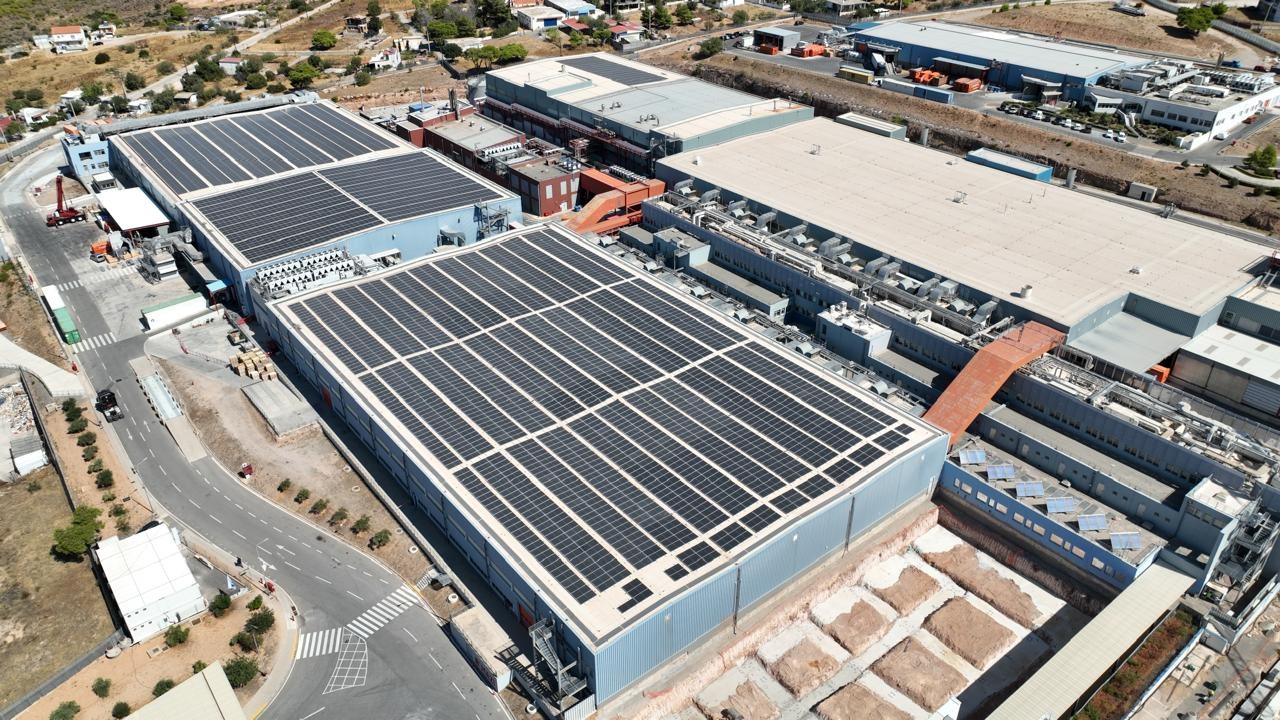The investment is being implemented within the framework of the company’s sustainable development strategy and Philip Morris International’s (PMI) global Zero Carbon Tech program, further reinforcing the Group’s commitment to achieving carbon neutrality across its industrial operations.
The “Heart” of the Project
The first phase of the project involves the installation and electrical interconnection of a new photovoltaic station on the roofs of the factory’s production buildings — a high-technology project with significant technical requirements. The new station will comprise 4,000 solar panels with a total capacity of 2.4 MW, generating 3.5 GWh of clean energy annually — an amount equivalent to the electricity needs of approximately 1,000 households. This production will make a substantial contribution to reducing the factory’s energy footprint, marking the first step toward its full energy upgrade.
The subsequent stages of the project include upgrading the plant’s operating systems and installing an industrial electric boiler and heat pumps, with the aim of drastically reducing carbon dioxide emissions.
According to the company, the successful completion of the first phase represents yet another tangible step toward the creation of the “Factory of the Future,” where technology and environmental responsibility coexist to shape a new generation of sustainable industry.
With this investment, Papastratos reaffirms its role as a pioneer of sustainable industrial production in Greece, aligning its operations with ESG standards and PMI’s global commitment to achieving full carbon neutrality across its manufacturing facilities by 2030.















